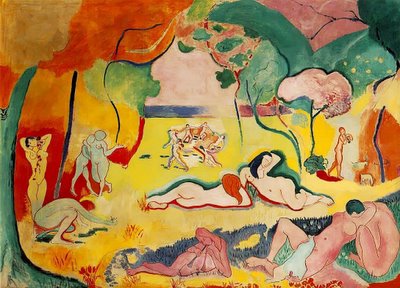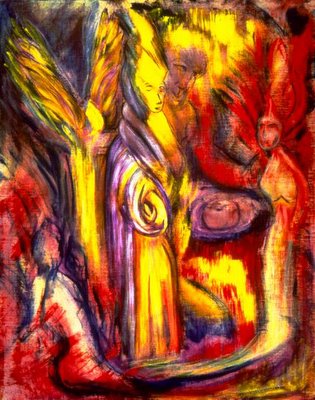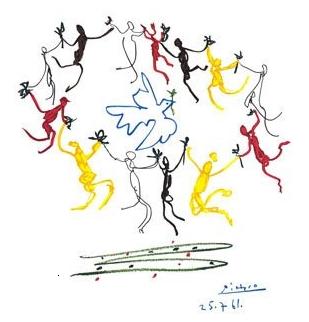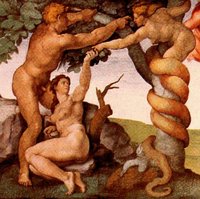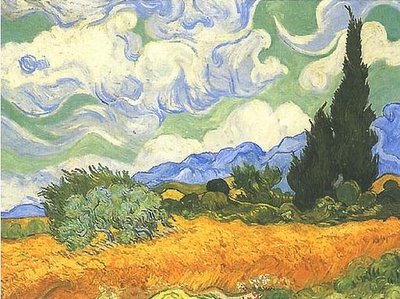
Let God rise up, let his enemies be scattered; let those who hate him flee before him. As smoke is driven away, so drive them away; as wax melts before the fire, let the wicked perish before God. But let the righteous be joyful; let them exult before God; let them be jubilant with joy. Sing to God, sing praises to his name; lift up a song to him who rides upon the clouds—his name is the Lord—be exultant before him. (Psalm 68: 1-4)
Who are the enemies of God? They are those who lie, who twist reality, who cause confusion.
I am an enemy of God when I seek my supposed self-interest at the expense of others. I am an enemy of God when I seek to deny God's purpose. I am an enemy of God when I fail to love.
Who are the righteous? They are those who seek the truth, who embrace reality, and who love even the enemies of God.
Above is Kornfeld mit Zypressen by Vincent Van Gogh.

